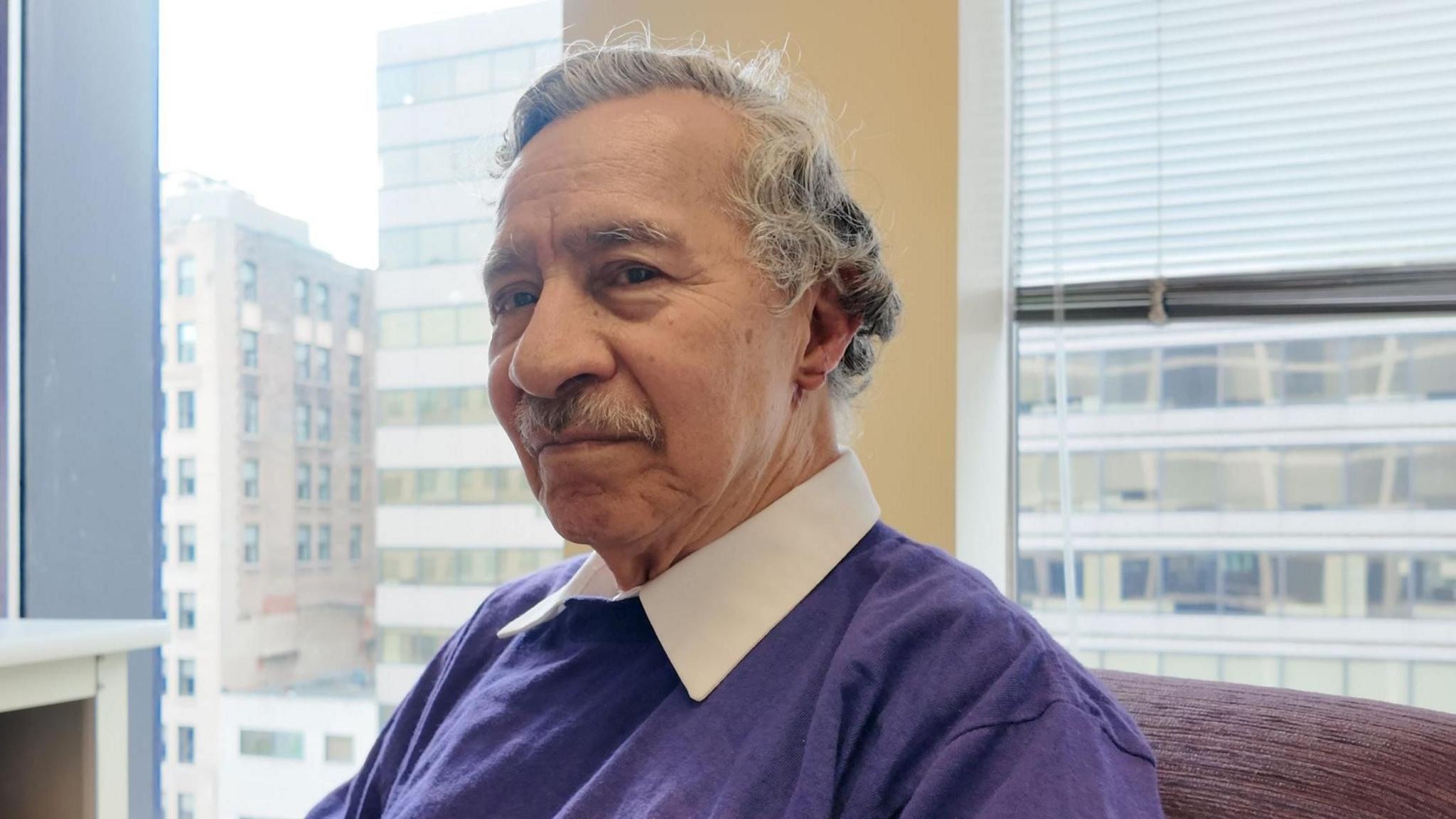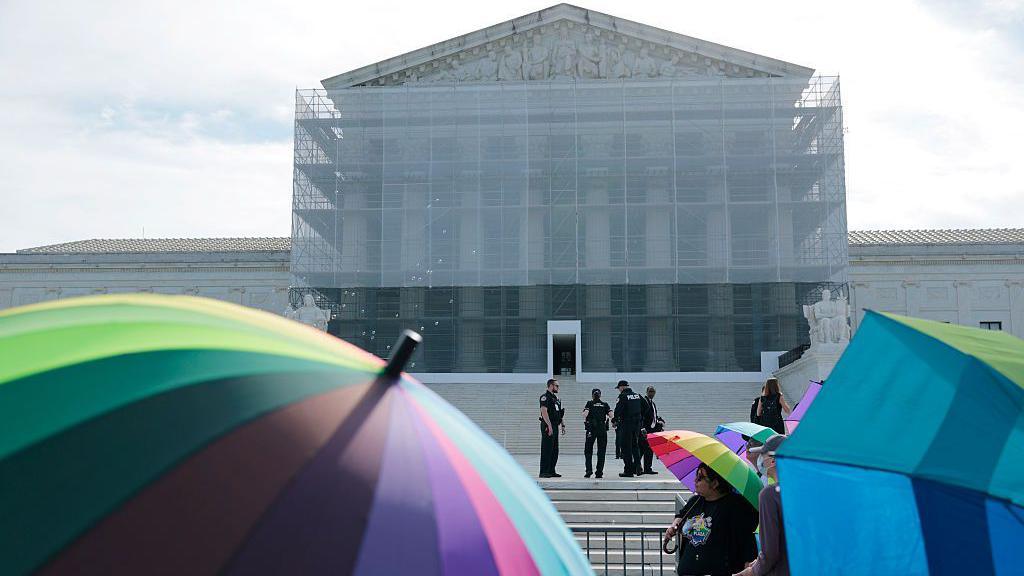Supreme Court curbs judges' power to block Trump's orders in birthright citizenship case

- Published
The top court in the US has ruled judges in lower courts have limited ability to block presidential orders, giving President Donald Trump what he called a "giant win".
The case surrounded whether Trump's attempt to use an executive order to end birthright citizenship for non-citizens and undocumented migrants was allowed.
In a 6-3 ruling, the Supreme Court's conservative justices sided with Trump and said they were not addressing Trump's attempt to end birthright citizenship. Rather their ruling addressed presidential actions broadly.
Experts said the ruling will change how executive actions are challenged in the future and noted legal challenges to the Friday ruling are likely to come.
Immigrant rights groups and 22 states sued the Trump administration over an executive order the president signed on his first day back in office. That order was aimed at ending birthright citizenship which gives people born on US territory automatic citizenship rights.
The lawsuits, filed in Maryland, Massachusetts, Washington state and elsewhere, were aimed at blocking the order from taking effect and temporarily did just that.
But the Justice Department disagreed and appealed the case to the Supreme Court, arguing those injunctions were not constitutional.
On Friday, the court agreed with the Trump's administration and introduced limits on how universal injunctions are issued by federal courts.
Watch: Trump says ruling is "monumental" as he thanks Supreme Court
Trump hailed the ruling as a victory at a surprise press conference on Friday and said the decision was a "monumental victory for the constitution, the separation of powers and the rule of law".
He said "radical left judges" have tried to overrule his powers as president and that nationwide injunctions are a "grave threat to democracy".
Upon returning to the White House in January, Trump immediately began using executive actions as a means to accomplish his agenda.
Attorney General Pam Bondi, who also spoke at the press conference, said the decision meant judges will not be able to stop Trump's policies.
She said she expects the Supreme Court to take up the question of birthright citizenship itself, in October when the next session of court begins.
While the Friday ruling said courts will still be able to halt presidential actions they deem unconstitutional or illegal, it will happen further along in the judicial process which will give presidents more space to act.
Because of the ruling to limit injunctions, Trump's birthright citizenship order will be able to take effect, 30 days after the court's opinion was filed, the court said.
However, the ruling is likely to see further legal challenges.
Samuel Bray, a Notre Dame Law School professor and expert on nationwide injunctions, said the ruling "has fundamentally reset the relationship between the federal courts and the executive branch".
The Supreme Court's ruling will mean universal injunctions "will no longer be the default remedy in challenges to executive action".
Justice Amy Coney Barrett, who authored the majority opinion, said federal courts do not "exercise general oversight of the Executive Branch" and instead they "resolve cases and controversies consistent with the authority Congress has given them".
"When a court concludes that the Executive Branch has acted unlawfully, the answer is not for the court to exceed its power, too," she wrote.
Justice Brett Kavanaugh, who wrote a concurring opinion, said that the Supreme Court, not the district courts or courts of appeals, "will often still be the ultimate decisionmaker as to the interim legal status of major new federal statutes and executive actions".
Justice Sonya Sotomayor penned the dissent for the liberal justices and called the Trump administration's request of the court "gamesmanship" and said the court "plays along".
"The Court's decision is nothing less than an open invitation for the Government to bypass the Constitution," she wrote.
"The rule of law is not a given in this Nation, nor any other. It is a precept of our democracy that will endure only if those brave enough in every branch fight for its survival. Today, the Court abdicates its vital role in that effort. With the stroke of a pen, the President has made a 'solemn mockery' of our Constitution."

